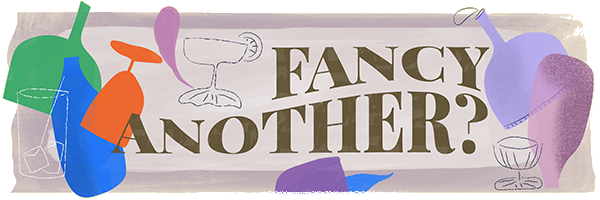Introducing Fancy Another? – a weeklong series on what young women's drinking culture in the UK looks like in 2022, with zero percent judgement. This week we have a very special Ask A Therapist.
Ever wondered what you'd say to a therapist, given the chance? We asked Dr Sheri Jacobson, a retired psychotherapist with over 17 years' clinical experience and the co-founder of Harley Therapy Platform (UK Online Therapists), for advice on the things we worry about in private.
Have a question for a therapist? Submit yours for Sheri.
Question:
I started dating someone a few months ago and it’s going well but the main thing we do together is drink. I don’t mean going on binges every other night (we only see each other a couple of times a week at the moment) but everything we do seems to hinge on getting giddily drunk together.
AdvertisementADVERTISEMENT
It’s honestly really enjoyable – she’s a really fun person to drink with and we are definitely bonding over our boozy dates – but it’s been a few months and we haven’t done anything that’s not been quite so full on.
I’m not actually that big of a drinker outside of this and I’m now a little worried. I don’t want to seem judgemental of her love of getting drunk because I’ve also been all for it, but I’m cautious this might be a red flag for the relationship. Or alternatively, that by slowing it down it will change what we have, which I don’t want.
How can I negotiate booze before this becomes a concerning pattern?
- Ursie, 31
Answer:
I would say drinking at the start of a relationship is quite common! There are positives and negatives to how embedded drinking is in UK culture, including in dating. The positive is that like any common thing or shared activity, you can bond over it. In particular, alcohol loosens you up and often gets you into a more receptive frame of mind. It's an icebreaker as well. It often helps to open our personalities up, particularly if British people are known to be more contained and closed than North American people, for example. The negatives are that alcohol has a sedative effect. It's a depressant in a way and you'll often (though not always) feel worse for it. Some people can manage their alcohol intake but as with sugar and caffeine, you get a spike and then a crash. And of course it can be addictive. A lot of people will find that they will have to drink regularly to get that same kind of buzz, or that they binge drink. So there's lots of problems with overconsumption and addiction. And then there's health complications and they are really quite vast. Everything from the traditional cirrhosis of the liver to cardiovascular issues, weight gain… It's not super healthy for the body.
AdvertisementADVERTISEMENT
That said, I wouldn't say that it is an issue to bond over drinking at the beginning of a relationship. Anything that people bond over is like the spark, including drinking. A shared activity can ignite a relationship, whether it's a hobby that you connect over or a project that you're working on. There's often some sort of common ground that you're doing together and it creates a shared experience.
Of course you want to form a relationship but you're also an individual, so you want to look at health from your perspective as well as the health of the couple. And there is a possibility that alcohol can sometimes lead us to say things that we regret, sometimes lead us to be more aggressive or more withdrawn. It does change our behaviour so it's something to be mindful about.
The likelihood is that you're bonding over something else. The drinking is there but it's probably not just about the alcohol – there's going to be topics of conversation that are going to connect you as well, because two people can drink alongside each other and not say a word. For a relationship to be long-lasting, shared activities, hobbies, life goals are all important. I think that drinking itself isn't enough – it's more like the spark of a fire and you need other commonalities that can act as logs to sustain and fuel that fire. If you are already bonding they are likely already there.
If drinking being a dominant factor still worries you then it's an opportunity to gently test the waters by asking a question or making an observation and then listening. So rather than just stating, "We drink too much, this has to stop," you should open up a discussion honestly and say that you love spending time together and that you've spent a lot of fun times while drinking but you've noticed that you haven't done other things, before asking if they've also noticed this. It's an inquiry with the goal of building the relationship. And the more communication, the better. But it should not be an interrogation! Rather a gentle exploration.
Framing is important too. You're not an alcohol counsellor and you don't want to be assessing or damning on the person. Instead you frame it as a way to build on the relationship that you are already enjoying as it is. You could even frame it that you are personally interested in not drinking for a period and ask what they think about that – that way it is neither a judgement or an instruction about their behaviour, just an invitation to discuss.
AdvertisementADVERTISEMENT







